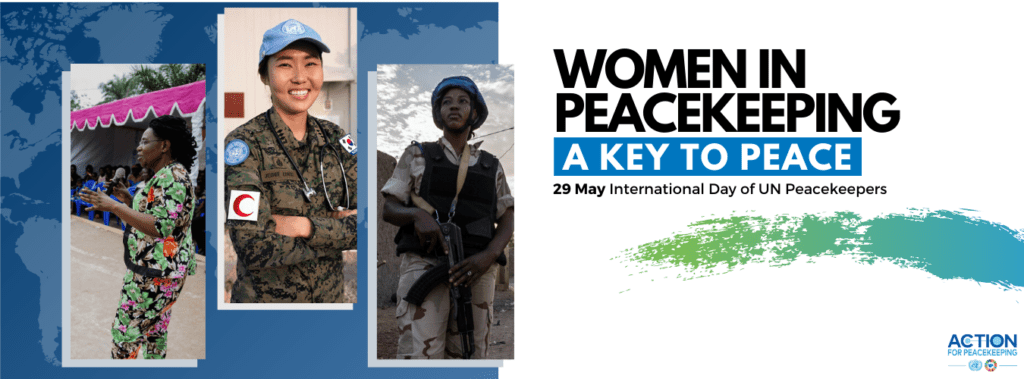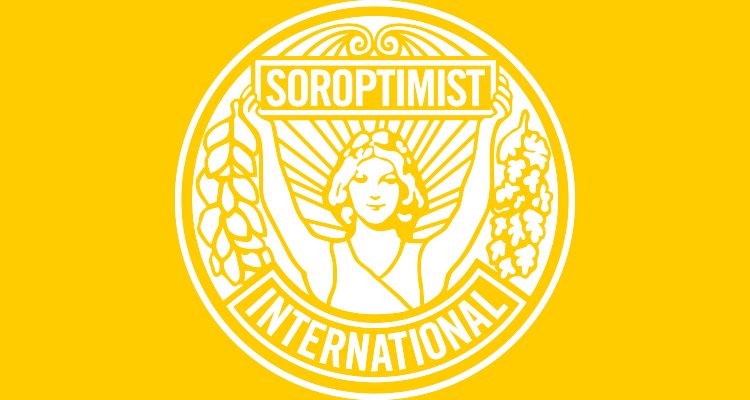A blog by Pat Black
Soroptimist International supports all activities which work towards achieving SDG 16, promoting peaceful and inclusive societies for sustainable development. However, we do not hear of the work of the UN Security Council very often. I was invited recently through National Alliance of Women’s Organisations (NAWO) UK, to attend a virtual consultation with NGOs and the current President of the UN Security Council, His Excellency Sven Jurgenson of Estonia.
It was a very interesting meeting attended by about 90 representatives from a wide range of non governmental organisations with consultative status at the UN. The President indicated that initially after 12 March 2020 when the UN closed its doors very little took place at the Security Council whilst they were trying to work out how to make progress during the current COVID–19 pandemic. Once they decided to work virtually it took them some time to set up secure sessions, beginning with only what was considered essential work with closed sessions. The UN has now moved to a full programme and is trying to open as many sessions as possible to include civil society. There are also side meetings happening on specific issues with NGOs included in some discussions.
Over the next 3 months the Presidency of the UN Security Council will be held by Estonia, France and Germany, all partner European Union countries. It has been agreed to run that time jointly, so the programme of work will be consistent over the three months and will not be disrupted. It is intended that their work be open and transparent and all documents will be published on the UN website.
At the end of March UN Secretary General Antonio Guterres made an appeal to the world to cease fire in all conflicts during the pandemic.
“To warring parties, I say: Pull back from hostilities. Put aside mistrust and animosity. Silence the guns, stop the artillery, end the airstrikes…” UN Secretary General Antonio Guterres
In our conversation with the President of the UN Security Council H.E. Sven Jurgenson expressed his disappointment that this call had not been answered. Indeed, the Secretary General repeated his message again in early April saying, “Today, I am releasing an update on the impact of the global ceasefire appeal. A substantial number of parties to conflict have expressed their acceptance for the call. As the update details, these include parties to conflict in the following countries: Cameroon, the Central African Republic, Colombia, Libya, Myanmar, the Philippines, South Sudan, Sudan, Syria, Ukraine and Yemen. But there is a huge distance between declarations and deeds — between translating words into peace on the ground and in the lives of people. There are enormous difficulties to implementation as conflicts have festered for years, distrust is deep, with many spoilers and many suspicions. We know that any initial gains are fragile and easily reversible. And in many of the most critical situations, we have seen no let-up in fighting — and some conflicts have even intensified. We need robust diplomatic efforts to meet these challenges. To silence the guns, we must raise the voices for peace.” HERE
Both the Secretary General and the Security Council President have pointed out the those suffering the greatest are civilians, the majority of whom are women and children and both call on Member States to enable humanitarian aid to reach those in need, especially supporting fragile health systems and economies.
Some Member States, civil society organisations and religious faith leaders have responded. But will it be enough?
Some countries have increased their aid to countries which are struggling to support huge refugee and migrant populations but will it reach them?
For many countries the effects of the pandemic are still emerging. Recently WHO Director General Dr Tedros Adhanom Ghebreyesus warned that many countries of Africa would be facing challenging times ahead as they struggled to deal with the spread of COVID -19. HERE.
In the face of the extensive security and health issues the UN Security Council President reported to NGOs, that he and colleagues had tried without success to get agreement to a Security Council resolution, in order to recognise the pandemic as both a health and a security issue. He indicated that certain Member States were not willing to agree the text unless it included specific issues which they wanted highlighted, such as the role of WHO in dealing with the initial stages of the emergence of the virus, and where the virus had originated. He was pleased that the UN General Assembly had agreed a resolution and was hopeful that they would eventually negotiate one from the Security Council.
The consequences of the COVID-19 pandemic are being seen and felt around the world. The role of the United Nations, in my view, becomes even more critical in this situation.
The UN Secretary General said, “Our world faces a common enemy: COVID-19. The virus does not care about nationality or ethnicity, faction or faith. It attacks all, relentlessly.”
As Soroptimists I encourage you to join with other NGOs to advocate for a multilateral approach to dealing with all aspects of the work needed across boundaries, whether it is health related or rebuilding economies. Whilst every country is struggling to deal with the virus in the best way possible for its own population, there has to be international agreement about the way forward. We have become accustomed to globalisation of trade and travel, exchanges of students, movement of labour forces which hare now totally disrupted. Will this be resumed in the future or are we facing stronger national security measures as countries endeavour to protect their own?

29 May is The International Day of United Nations Peacekeepers Find out more HERE
As we commemorate the 20th anniversary of Security Council Resolution 1325 on Women, Peace and Security, we must do more to achieve women’s equal representation in all areas of peace and security. Together, let us continue to wage peace, defeat the pandemic and build a better future.” UN Secretary-General António Guterres

